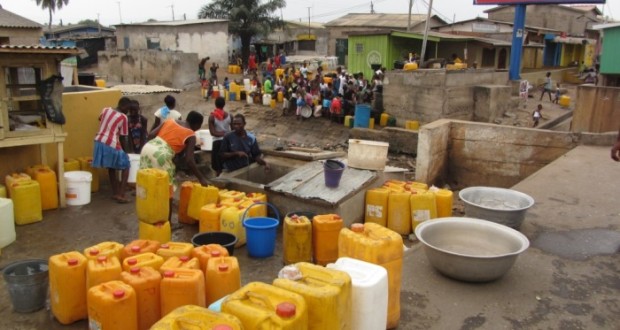Officials in Ghana have announced that they have been forced to begin rationing water for citizens following a drop in water production.
The Ghana Water Company Limited in a statement said it has rolled out a rationing program for the entire country due to the dry season that has set in.
Water sources for the country’s production plants have also been polluted making treatment a major challenge. The water company said that “the situation has led to intermittent water supply in most cities and towns in the country.”
“The dry season is on and consumers with greater dependence on rainwater have also compounded the problem by taking to treated water use. These practices ease the pressures in the pipelines thereby causing low pressure and no flow in some areas, especially areas located in high elevations,” the statement added.
Water consumers would now have to preserve water according to officials but the water company said it is “very much concerned about the serious impact of the water situation in the country and wish to assure the general public that, the company is working assiduously to undertake the necessary steps aimed at improving the water delivery in the Country.”
Ghanaians have also been advised against indiscriminate watering of lawns with treated water and rather be moderate in the use of treated water for car washing.
They are to also shut all taps when not in use, repair all leakages in their homes, like overflowing reservoirs and dripping taps, valves, etc, and also report all burst pipes and leakages immediately.
Meanwhile residents in the South African city of Cape Town have also been warned to “save water as if your life depends on it” to avoid the supply being shut off.
A severe drought has forced the city’s municipality to limit consumption to 50 litres (11 gallons) per person per day.
Officials are urging people to switch off their toilet cisterns and limit flushing to conserve water. The head of the provincial government said if the taps ran dry it would be “the disaster above all disasters”.
Source: Africafeeds.com



